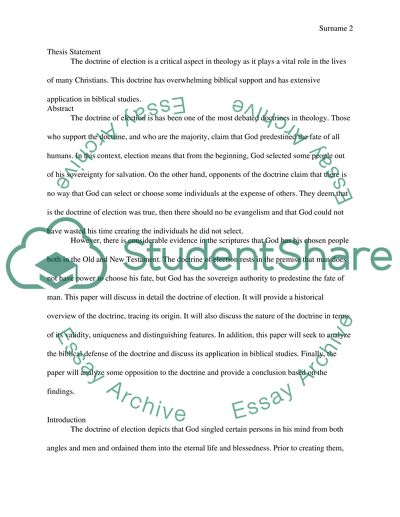Cite this document
(“Doctrine of election and its application to biblical studies Essay”, n.d.)
Retrieved de https://studentshare.org/religion-and-theology/1392370-doctrine-of-election-and-its-application-to-biblical-studies
Retrieved de https://studentshare.org/religion-and-theology/1392370-doctrine-of-election-and-its-application-to-biblical-studies
(Doctrine of Election and Its Application to Biblical Studies Essay)
https://studentshare.org/religion-and-theology/1392370-doctrine-of-election-and-its-application-to-biblical-studies.
https://studentshare.org/religion-and-theology/1392370-doctrine-of-election-and-its-application-to-biblical-studies.
“Doctrine of Election and Its Application to Biblical Studies Essay”, n.d. https://studentshare.org/religion-and-theology/1392370-doctrine-of-election-and-its-application-to-biblical-studies.


